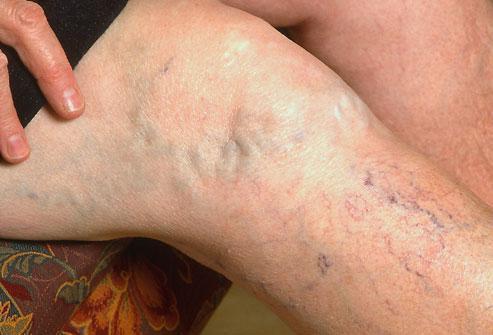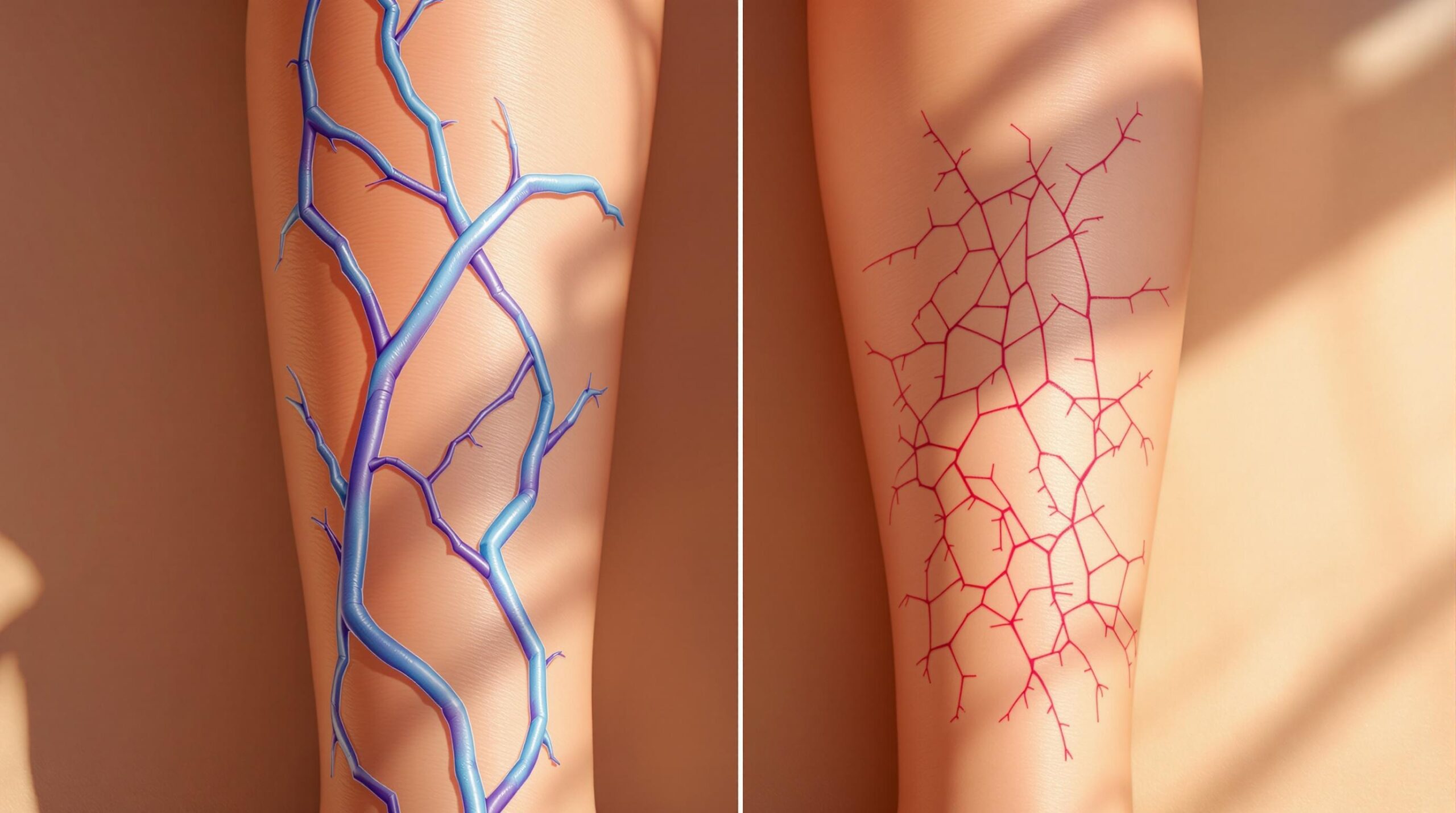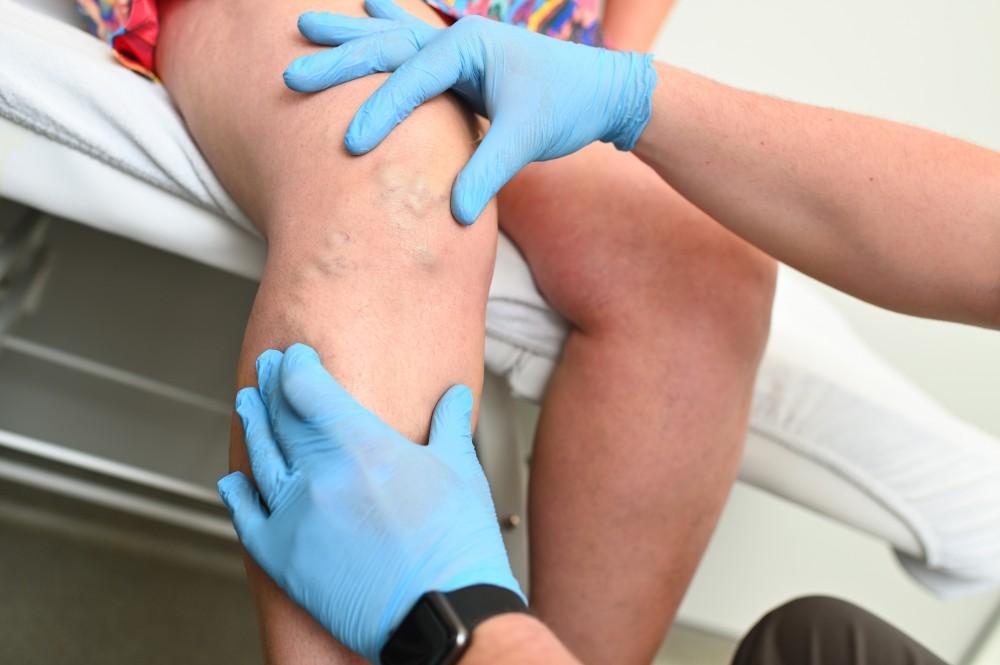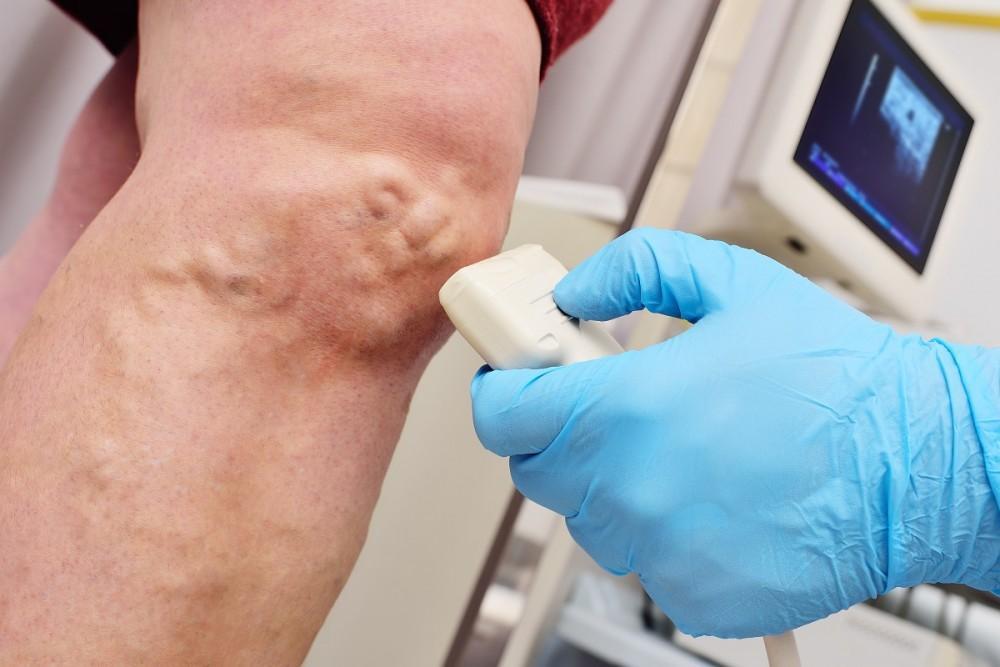Varicose veins are a pain for many people, but rarely cause pain. Varicose veins, however, can cause some irritation, pain, and other physical symptoms. Though varicose veins don’t usually pose a serious health threat, the discomfort they can cause and their unfortunate appearance may persuade you to seek treatment.
Treating varicose veins is part of protecting the vascular system, addressing varicose vein pain at its source.
What exactly are varicose veins?
Our veins aren’t just passageways for our blood, with the heart doing all of the work of moving blood through our bodies. Each blood vessel has several valves that continue the heart’s work of moving blood through the body. Unfortunately, these little valves are susceptible to malfunction, particularly as we age.
When one of these valves fails, the blood begins to pool in the vein, causing the vein to bulge, pushing its way to the surface of your skin. This results in varicose veins’ signature appearance, appearing most frequently on legs and ankles, but occasionally on arms. Varicose veins can appear in your face and neck as spider veins.
What makes them hurt?
The most common type of pain reported by people with varicose veins is an achy, heavy feeling in the legs. The damaged vein can cause pain. Other painful symptoms of varicose veins include:
- Throbbing and burning
- Cramping muscles
- Concentrated areas of discomfort
- Swelling in ankles or legs
People with varicose veins tend to feel more pain after standing or sitting for long periods of time. Pain may be worse later in the day or in warmer weather. If you’re also experiencing hardness and discolored skin around the bulging vein, you may be experiencing phlebitis, a condition that occurs when a clot forms in a varicose vein.
What can I do about my varicose veins?
Your varicose vein pain can be treated on its own, but your provider will most likely recommend treating the problem itself: your varicose veins. Before trying anything more invasive, we’ll recommend elevating your feet and using compression stockings, along with other lifestyle and dietary changes. These simple approaches may give you results.
In the event that a reformed self-care regimen doesn’t produce results, we’ll explore some of our in-office treatment options.
Sclerotherapy
Sclerotherapy is a simple and popular choice to treat varicose veins. Using a small needle, we simply shut down the diseased vein, allowing blood to flow to a healthy vein.
Microphlebectomy
For varicose vein patients who need extra care, your provider may use a small hook to remove the vein from your leg. Though this procedure is more invasive, it is still a simple, outpatient procedure.
Radiofrequency ablation
Radiofrequency ablation is a noninvasive procedure that many people prefer to treat their varicose veins. Using radiofrequency laser energy, the vein is broken down when the laser’s energy disrupts its structure.
Before we recommend any treatment, we sit with you for a full exam and consultation. Depending on what your provider determines is right for you, we may be able to treat you the day of your appointment. If your varicose veins have been hurting, or if you’re bothered by the way that they look, call us today at 972-295-7017, or book an appointment with us online.





